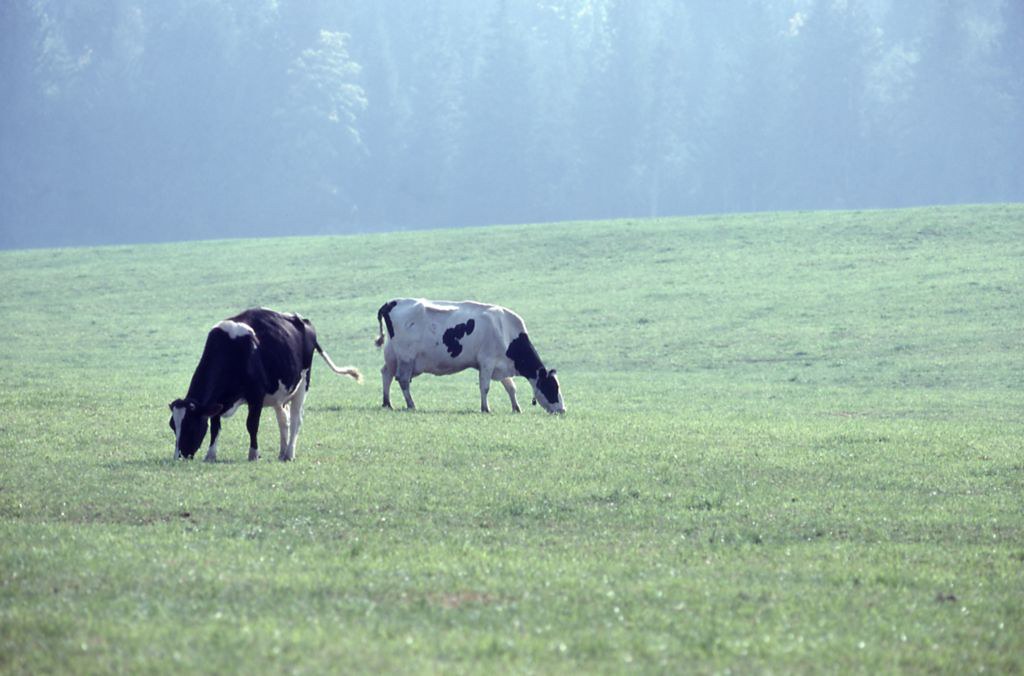Less than a year out from the European elections, a scrambling EU has seen its Green Deal enter its “twilight days” in recent weeks. The early optimism following the Commission’s unveiling of this ambitious legislative agenda in late 2019 has faded bitterly, with the juggernaut centre-right European People’s Party (EPP) of President Ursula von der Leyen caving in on itself amid mounting concerns over food security and the unfair impact on farmers.
This internal division has most recently been displayed in the Nature Restoration Law saga, which the Manfred Weber-led EPP has fiercely opposed as part of its rightward lurch. While it passed in the Parliament’s July vote, the EPP pushback succeeded in significantly diluting the text’s commitments. This widening gulf between green and productivity goals, fueled by the fallout of the war in Ukraine and misguided policies, is contributing to stagnation in other Green Deal agri-food files, from biodiversity schemes to nutrition and origin labelling.
Yet with the pre-election Brussels’s policymaking machine running out of steam, member-states are stepping up with well-adapted local solutions for their farmers.
Unfortunately, Brussels’s nature-based agriculture policy woes have not been limited to its controversial Nature Restoration Law. The eco-schemes included in the EU’s new Common Agricultural Policy (CAP) offer farmers additional funds to support the domestic implementation of biodiversity-enhancing farming practices; however, they are struggling to take root.
In Germany, farmers have largely reported that the eco-schemes present significant financial, logistical and administrative barriers – particularly for small farms – resulting in extremely low uptake. For example, flower strip planting schemes for insect habitats and agroforestry systems schemes have failed to reach even 1% of their forecasted targets.
German farmer Ottmar Ilchmann has notably concluded that the eco-schemes are “not worth it because the risk of making a mistake (and thus not receiving the premium) is too high,” for small farmers. The story is much the same in Czechia, where even organic farmers have been put off by the schemes’ complexity and weak compensation, with Vladimír Pícha aptly summarising that Brussels’s “good intentions have been devalued by imperfect implementation.”
Encouragingly, German federal states have submitted proposals to simplify eligibility criteria and boost premiums, which could serve as a model for other countries keen to help their farmers transition to sustainable agricultural in a fair, financially-viable manner.
Yet biodiversity schemes are not the only component of the EU’s Farm to Fork Strategy – the Green Deal’s agri-food pillar – running into a wall. Indeed, Brussels’s proposal for a bloc-wide front-of-package (FOP) nutrition label has yet to see the light of day. Delaying the proposal to the first half of 2023 late last year, the ongoing silence on this polarising file is fueling growing doubts over whether the Commission will actually put forward its proposal before next year’s elections.
MEP Paolo de Castro had notably predicted this outcome last December, while positing that a “single harmonized system” is unnecessary given the bloc’s “many cultural differences” that cannot easily be reconciled under one label. At the heart of this stagnating policy is the Nutri-Score label, one of several under consideration by the EU executive. Voluntarily adopted in member-states including France and Germany, Nutri-Score has faced strong opposition in countries such as Romania, Italy and Czechia on precisely these grounds.
By overly focusing on sugar, salt and fat and excluding crucial nutritional components, Nutri-Score’s algorithm designates misleadingly positive scores – on an A-to-E scale – to certain ultra-processed, artificial sweetener-loaded products such as Coca-Cola while hitting traditional, single-ingredient products, including French cheese and Spanish ham, with ‘D’ and ‘E’ scores. In addition to putting local producers at a significant competitive disadvantage, this glaring blind spot is particularly worrying for consumers given the World Health Organisation’s recent designation of the widely-used artificial sweetener aspartame as “possibly carcinogenic to humans.”
And despite the Nutri-Score 3.0 algorithm update, Coke Zero, will absurdly share the same ‘C’ score with whole milk and natural sugar-rich French plums, showing that endless revisions simply cannot make Nutri-Score a reliable system.
Brussels’s faltering nutrition label has notably inspired Germany to take matters into its own hands. Tired of waiting for the EU’s food labelling proposal – which would include a harmonised origin label in addition to the FOP – the German government adopted a bolstered regulation on mandatory origin label for meat products in late July, in a move that Agriculture Minister Cem Özdemir has compared to other member-states’ unilateral efforts.
Indeed, Italy has already implemented origin schemes for tomatoes, rice and durum wheat in pasta, while France, Spain and Greece have domestic schemes in place for milk. Berlin’s new origin labelling regulation will notably extend requirements from pre-packaged meat to unpacked pork and other meats, a move celebrated by local farmers concerned with the unfair competition implications of Germany’s domestic animal welfare label given that requirements would not apply to agri-food imports from other EU countries.
The German Farmers’ Association has argued that the origin label provides a crucial counterbalance to the animal welfare label by giving a competitive and legitimising boost to “Made in Germany’ products, showing, as with eco-schemes, that member-states are better placed to adapt policies to their farmers’ needs.
Across all of the EU’s ‘Farm to Fork’ goals, from environmental sustainability to animal welfare and nutritional health, the bloc’s farmers are willing to contribute to these endeavours but lack the necessary financial and policy support from Brussels.
To overcome the increasingly apparent confrontation between Green Deal agricultural ambitions, farming productivity and food security, the EU must fairly compensate farmers for the costs of implementing higher standards for worthy agendas, while avoiding poorly-designed policies that put agri-food producers at a competitive disadvantage without even achieving their intended outcomes.
With the Commission’s mandate and the Parliament’s active legislative period both nearing their end ahead of next June’s elections, it is likely too late to alter brewing Brussels policies in the short-term. However, at the very least, the EU should avoid rushing through ill-conceived policies at the last minute, and instead cut their losses, waiting until the next term to adopt a better course for the bloc’s beleaguered farmers.
Image: Province of British Columbia/Flickr
This story first appeared on Sustainability Times
© 2023 Sustainability Times.
This article is licensed under a Creative Commons Attribution-ShareAlike 4.0 SA International License.











